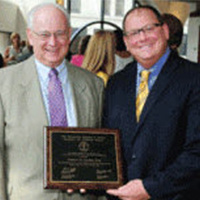 Crittenden Misdemeanor Lawyers, New York
Crittenden Misdemeanor Lawyers, New York
Sponsored Law Firm
-
 x
x

Click For More Info:
-
Cohen & Bernstein, L.L.C.
1360 Clifton Ave #309 Clifton, NJ 07012» view mapCriminal Defense We’re In this Together!
We work hand in hand with our clients to ensure all of your questions are answered and progress through your legal issue is seamless.
800-978-7341
Not enough matches for Crittenden Misdemeanor lawyer.
Below are all Crittenden Criminal lawyers.
Sponsored Lawyers
1-10 of 14 matches
Accident & Injury, Criminal, Divorce & Family Law, Estate, Bankruptcy & Debt
Derek Akiwumi, representing clients throughout WNY, has a proven reputation for getting the results you need. From criminal defense, appeals, and personal injury, Derek Akiwumi can help.
(more)Criminal, DUI-DWI, Felony, Accident & Injury, Personal Injury
Personal injury and criminal law is a complex collection of ever-changing legislation and case law. Many of those injured by a third party's negligence and/or facing allegations of criminal offenses may not understand their rights or how their lives will be impacted. Without the help of a knowledgeable lawyer, your rights could be prejudiced. As an attorney with more than 25 years of experience, I understand the critical nature of staying up-to-date with the changes to state and federal law. As your lawyer, I will uncover the details of your case, answer your questions, and help you build a tough strategy to battle the legal challenges you face. I can also help you navigate your way through New York’s complex legal system. Talk to me first before making any decision that could have legal implications.
(more)


 Lindsay Bernstein Clifton, NJ
Lindsay Bernstein Clifton, NJ Practice AreasExpertise
Practice AreasExpertise


